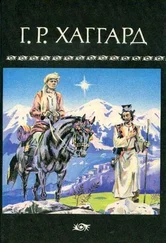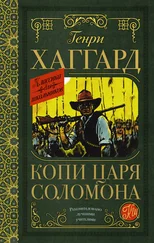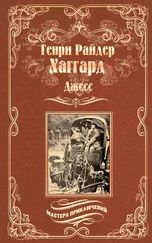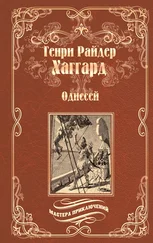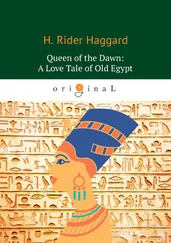“Why did you keep me standing there in the cold?” he asked pettishly. “You know the draughts are death to me.”
“I did not know who it was,” I answered. “You are a late visitor.”
“Yes; and I verily believe it is my last visit,” he answered, with a ghastly attempt at a smile. “I am done for, Holly. I am done for. I do not believe that I shall see to-morrow.”
“Nonsense!” I said. “Let me go for a doctor.”
He waved me back imperiously with his hand. “It is sober sense; but I want no doctors. I have studied medicine and I know all about it. No doctors can help me. My last hour has come! For a year past I have only lived by a miracle. Now listen to me as you have never listened to anybody before; for you will not have the opportunity of getting me to repeat my words. We have been friends for two years; now tell me how much do you know about me?”
“I know that you are rich, and have had a fancy to come to College long after the age that most men leave it. I know that you have been married, and that your wife died; and that you have been the best, indeed almost the only friend I ever had.”
“Did you know that I have a son?”
“No.”
“I have. He is five years old. He cost me his mother’s life, and I have never been able to bear to look upon his face in consequence. Holly, if you will accept the trust, I am going to leave you that boy’s sole guardian.”
I sprang almost out of my chair. “ Me! ” I said.
“Yes, you. I have not studied you for two years for nothing. I have known for some time that I could not last, and since I realised the fact I have been searching for some one to whom I could confide the boy and this,” and he tapped the iron box. “You are the man, Holly; for, like a rugged tree, you are hard and sound at core. Listen; the boy will be the only representative of one of the most ancient families in the world, that is, so far as families can be traced. You will laugh at me when I say it, but one day it will be proved to you beyond a doubt, that my sixty-fifth or sixty-sixth lineal ancestor was an Egyptian priest of Isis, though he was himself of Grecian extraction, and was called Kallikrates. [2] The Strong and Beautiful, or, more accurately, the Beautiful in strength.
His father was one of the Greek mercenaries raised by Hak-Hor, a Mendesian Pharaoh of the twenty-ninth dynasty, and his grandfather or great-grandfather, I believe, was that very Kallikrates mentioned by Herodotus. [3] The Kallikrates here referred to by my friend was a Spartan, spoken of by Herodotus (Herod. ix. 72) as being remarkable for his beauty. He fell at the glorious battle of Plataea (September 22, B. C. 479), when the Lacedaemonians and Athenians under Pausanias routed the Persians, putting nearly 300,000 of them to the sword. The following is a translation of the passage, “For Kallikrates died out of the battle, he came to the army the most beautiful man of the Greeks of that day – not only of the Lacedae-monians themselves, but of the other Greeks also. He when Pausanias was sacrificing was wounded in the side by an arrow; and then they fought, but on being carried off he regretted his death, and said to Arimnestus, a Plataean, that he did not grieve at dying for Greece, but at not having struck a blow, or, although he desired so to do, performed any deed worthy of himself.” This Kallikrates, who appears to have been as brave as he was beautiful, is subsequently mentioned by Herodotus as having been buried among the ἰρένες‚ (young commanders), apart from the other Spartans and the Helots. – L.H.H.
In or about the year 339 before Christ, just at the time of the final fall of the Pharaohs, this Kallikrates (the priest) broke his vows of celibacy and fled from Egypt with a Princess of Royal blood who had fallen in love with him, and was finally wrecked upon the coast of Africa, somewhere, as I believe, in the neighbourhood of where Delagoa Bay now is, or rather to the north of it, he and his wife being saved, and all the remainder of their company destroyed in one way or another. Here they endured great hardships, but were at last entertained by the mighty Queen of a savage people, a white woman of peculiar loveliness, who, under circumstances which I cannot enter into, but which you will one day learn, if you live, from the contents of the box, finally murdered my ancestor Kallikrates. His wife, however, escaped, how, I know not, to Athens, bearing a child with her, whom she named Tisisthenes, or the Mighty Avenger. Five hundred years or more afterwards, the family migrated to Rome under circumstances of which no trace remains, and here, probably with the idea of preserving the idea of vengeance which we find set out in the name of Tisisthenes, they appear to have pretty regularly assumed the cognomen of Vindex, or Avenger. Here, too, they remained for another five centuries or more, till about 770 A. D., when Charlemagne invaded Lombardy, where they were then settled, whereon the head of the family seems to have attached himself to the great Emperor, and to have returned with him across the Alps, and finally to have settled in Brittany. Eight generations later his lineal representative crossed to England in the reign of Edward the Confessor, and in the time of William the Conqueror was advanced to great honour and power. From that time to the present day I can trace my descent without a break. Not that the Vinceys – for that was the final corruption of the name after its bearers took root in English soil – have been particularly distinguished – they never came much to the fore. Sometimes they were soldiers, sometimes merchants, but on the whole they have preserved a dead level of respectability, and a still deader level of mediocrity. From the time of Charles II. till the beginning of the present century they were merchants. About 1790 by grandfather made a considerable fortune out of brewing, and retired. In 1821 he died, and my father succeeded him, and dissipated most of the money. Ten years ago he died also, leaving me a net income of about two thousand a year. Then it was that I undertook an expedition in connection with that ,” and he pointed to the iron chest, “which ended disastrously enough. On my way back I travelled in the South of Europe, and finally reached Athens. There I met my beloved wife, who might well also have been called the ‘Beautiful,’ like my old Greek ancestor. There I married her, and there, a year afterwards, when my boy was born, she died.”
He paused a while, his head sunk upon his hand, and then continued – “My marriage had diverted me from a project which I cannot enter into now. I have no time, Holly – I have no time! One day, if you accept my trust, you will learn all about it. After my wife’s death I turned my mind to it again. But first it was necessary, or, at least, I conceived that it was necessary, that I should attain to a perfect knowledge of Eastern dialects, especially Arabic. It was to facilitate my studies that I came here. Very soon, however, my disease developed itself, and now there is an end of me.” And as though to emphasise his words he burst into another terrible fit of coughing.
I gave him some more whisky, and after resting he went on –
“I have never seen my boy, Leo, since he was a tiny baby. I never could bear to see him, but they tell me that he is a quick and handsome child. In this envelope,” and he produced a letter from his pocket addressed to myself, “I have jotted down the course I wish followed in the boy’s education. It is a somewhat peculiar one. At any rate, I could not entrust it to a stranger. Once more, will you undertake it?”
“I must first know what I am to undertake,” I answered.
“You are to undertake to have the boy, Leo, to live with you till he is twenty-five years of age – not to send him to school, remember. On his twenty-fifth birthday your guardianship will end, and you will then, with the keys that I give you now” (and he placed them on the table) “open the iron box, and let him see and read the contents, and say whether or no he is willing to undertake the quest. There is no obligation on him to do so. Now, as regards terms. My present income is two thousand two hundred a year. Half of that income I have secured to you by will for life, contingently on your undertaking the guardianship – that is, one thousand a year remuneration to yourself, for you will have to give up your life to it, and one hundred a year to pay for the board of the boy. The rest is to accumulate till Leo is twenty-five, so that there may be a sum in hand should he wish to undertake the quest of which I spoke.”
Читать дальше

